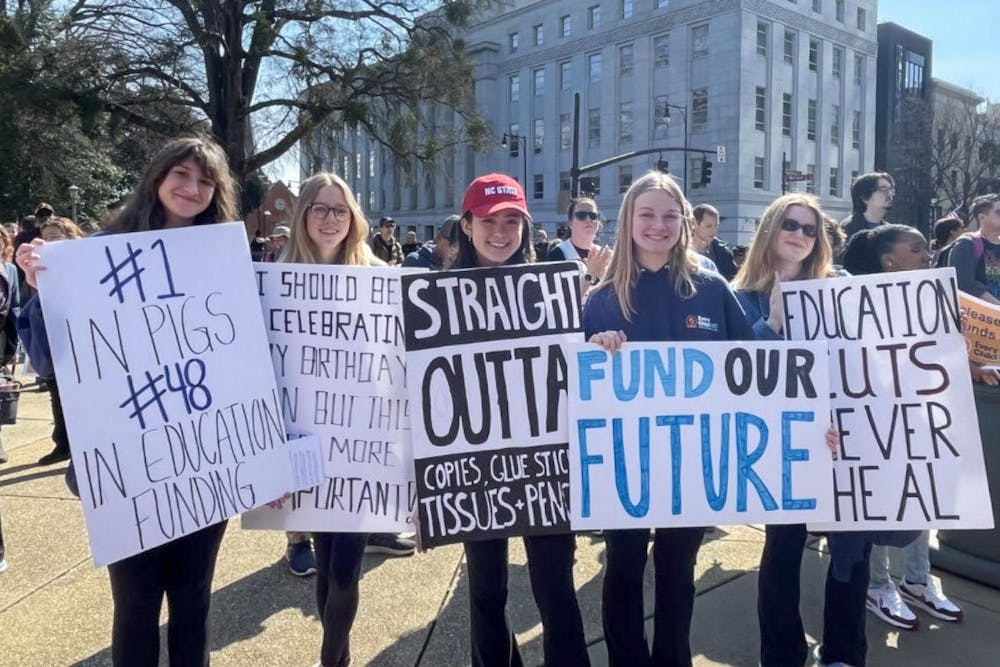When UNC first-year Keniya Black wanted to excel at her high school, she said she had to fight for it.
As a low-income Black student in a rural N.C. public school, the opportunities and resources to pursue higher education were not the same as her white peers, she said.
“It felt a lot of times that my teachers, they kind of doubted me and my abilities to do this coursework that was at a higher level,” Black said. “I can't say for sure it was because I'm Black, or because I was a woman, but I did go to a predominantly white school, and I didn't really see the same treatment to those students.”
Her experiences are reflected in a larger legal battle currently being argued in the N.C. Supreme Court in Leandro v. State of North Carolina. The case, which is a subsequent case from one filed in 1994, examines K-12 students’ statewide access to a “sound basic education” in public schools and the state government’s responsibility in providing adequate funding to ensure this.
David Hinojosa, who represents the NAACP Charlotte-Mecklenburg County Branch as the case’s plaintiff intervenor, said much of the case is centered on statewide data that shows significant racial achievement gaps among K-12 students, including reading and mathematics proficiency levels.
Sophomore Pragya Upreti, executive board member for the Affirmative Action Coalition, said this case is closely connected to UNC students.
“One of the things that our team has realized recently is that K-12 students, in the state of North Carolina, particularly — they are our pipeline,” she said. “They're the students who will someday also be students of UNC-Chapel Hill, and we have an obligation to create a university that values their contributions as diverse students.”
The goal, Hinojosa said, is to ensure that high-achieving students, especially students of color at under-resourced schools, are not falling under the radar — which he said could be even more difficult now without the use of affirmative action in UNC’s admissions process.
Betsy McCandless, a counselor at Pamlico County High School, said this is something she focuses on in her role at a rural and lower-socioeconomic N.C. school.



